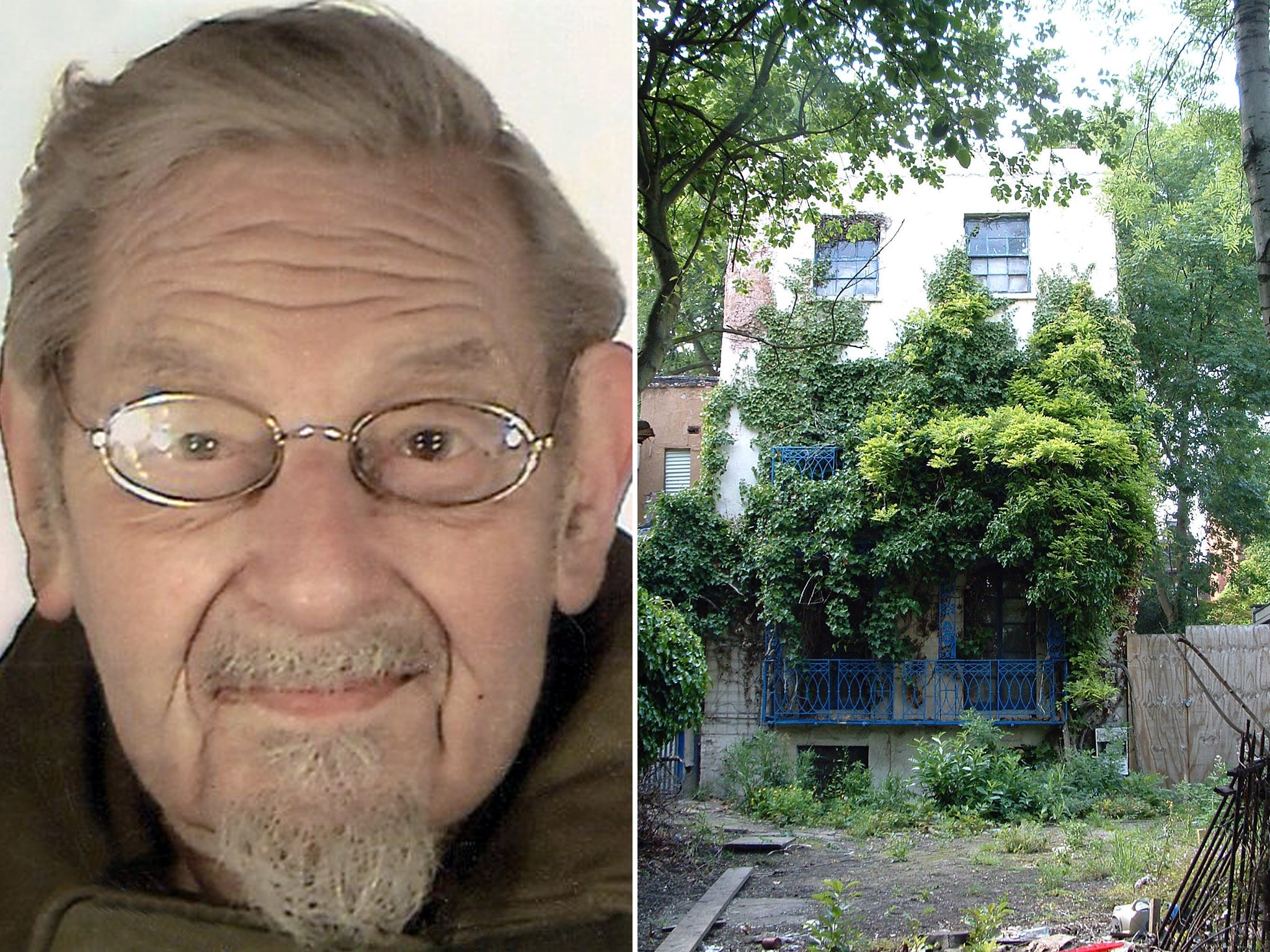Allan Chappelow: Secrets of millionaire’s murder may be revealed in human rights court
Prosecutors fear for state security if convicted killer of an elderly author is given leave to appeal

It was a murder trial which made headlines, despite there being so little of the story to tell. The brutal killing of an elderly, frail reclusive millionaire author battered to death in his north London mansion was considered by two juries, who both heard the case in secret.
But the mystery surrounding the murder of Allan Chappelow has persisted since police officers discovered the 86-year-old’s badly decomposed body beneath an enormous pile of book proofs in his home close to Hampstead Heath in June 2006.
The full details of the case are still to emerge, after the former Home Secretary Jacqui Smith took the rare step of intervening in a criminal case on the grounds of national security. Government lawyers issued a public interest immunity certificate (PII), which forced large parts of the case to be heard in secret.
Now Britain’s highest court has decided it will examine the case again, raising the possibility the full details may finally be revealed.
The prosecution claimed it would sooner see Wang Yam, the man convicted of Mr Chappelow’s murder, walk free than risk national security secrets being revealed.
Yam, who has always denied the charges, is the grandson of a close associate of Chinese leader Chairman Mao and the son of a Chinese Red Army General. He came to Britain in 1992 via Hong Kong, and was granted asylum in the UK after claiming he took part in the Tiananmen Square protests.
What can be reported is that Yam came to police officers’ attention after they realised he lived close to the victim and had been linked to stolen credit cards. The jury also heard the evidence of a postman who said he had seen someone answering Wang’s description near the victim’s house. The postman said he had a conversation with the man about mail due to be delivered to Mr Chappelow.
The jury, which was security vetted, convicted Yam of theft and fraud offences but failed to agree on the murder charge. He was retried under identical conditions and was convicted. Wang was jailed for life in 2009, with a recommendation he serve a minimum of 20 years.
The Appeal Court heard his conviction for murder depended on the jury being sure that he was the thief. His defence stated he admitted involvement in handling cheques and credit cards belonging to the victim but claimed they had been handed to him by gangsters, whose names and descriptions he had provided to police.
The appeal was turned down in 2010 and his lawyers tried to take the case to the European Court of Human Rights (ECHR) in Strasbourg, on the grounds he has not had a fair trial. They tried and failed to lift the gagging order.
Now Britain’s Supreme Court justices have ruled they will hear the case to determine whether the Government has the power to prevent an individual placing material before the ECHR. They will also determine whether that power can be used where UK courts are “satisfied it is not in the interests of state for the material to be made public even to the Strasbourg Court”.
Yam’s lawyer, James Mullion, of Janes Solicitors, said the Supreme Court had granted Yam premission to appeal the order which forbids him from communicating the full facts of the defence. A date for the hearing is yet to be set.